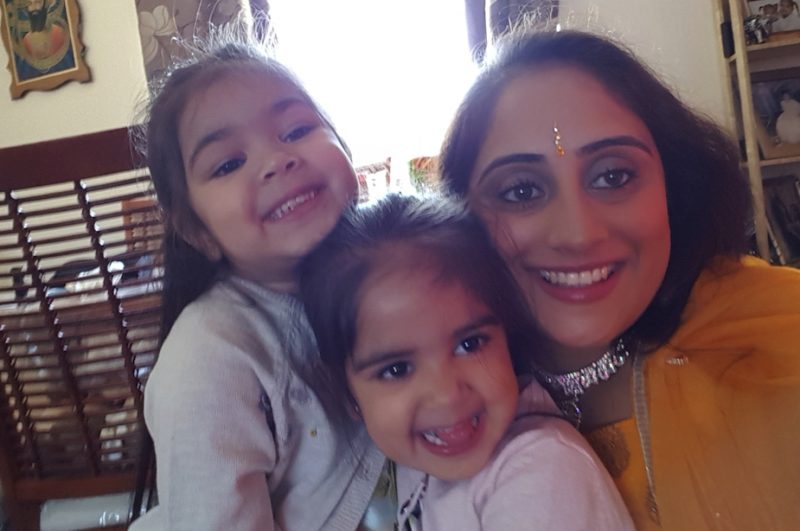A Leicester mother is urging women to do “all they can” to avoid developing diabetes in pregnancy after learning more about the condition.
Kavita Sarana, 29, developed gestational diabetes during her second pregnancy and agreed to take part in a major research study about the condition.
The Baby Steps study is looking to understand more about the ailment in a bid to develop an education programme to reduce the risks of developing gestational diabetes during pregnancy and Type 2 diabetes afterwards.
The mother of two, who lives in Oadby, said: “During my first pregnancy I had no problems at all, but when I was expecting my second child my blood sugar levels were very unbalanced and I was told I had gestational diabetes.
“Until I was told that, I had no idea just how serious the condition can be and if I had been told about it, I would have been more careful about what I ate and tried to be a bit more active.
“I had no idea it can increase your baby’s chances of congenital abnormalities, and there are also risks of stillbirth and having larger babies. I spent the rest of my pregnancy worrying about my baby and my health so I am urging other expectant mothers to do all they can to avoid developing it.”

The research programme is being carried out by a team from CLAHRC East Midlands, a collaboration of the NHS, universities, patients and industry, which sets out to improve patient outcomes by conducting research of local relevance and international quality.
Carol Liptrot, Midwifery Research Associate at CLAHRC East Midlands and the University Hospitals of Leicester NHS Trust, who is working on the project, said: “Gestational diabetes happens if the body cannot produce enough insulin – a hormone that helps control blood sugar levels – to meet the extra needs in pregnancy.
“Although this is usually a temporary condition, it can be extremely serious and have lasting consequences. However, observational evidence suggests a healthy lifestyle is associated with a reduced risk of developing Type 2 diabetes in women with a history of gestational diabetes. That’s why we are developing these programmes, to help steer women with a history of the condition to a healthy future.”

Women with the condition also have a two-fold increase in the risk of pre-eclampsia and at least a seven-fold increased risk of developing Type 2 diabetes within 10 years.
Professor Kamlesh Khunti, Director of CLAHRC East Midlands and also Professor of Primary Care Diabetes and Vascular Medicine at the University of Leicester, said: “Gestational diabetes is a serious condition that can have dire consequences if not managed properly.
“There are particularly high levels of the condition among women from South Asian communities, which is especially relevant in Leicester given the multi-ethnic make-up of the city. We are continuing to look for women with a history of gestational diabetes so they can help us to combat the increased risk of other women developing Type 2 diabetes in the future.”
The contributions made by study participants will enable the programme to be evaluated, with the women being randomly allocated to usual care or to the programme to fully understand its impact.
For more information or to take part, email [email protected] .







